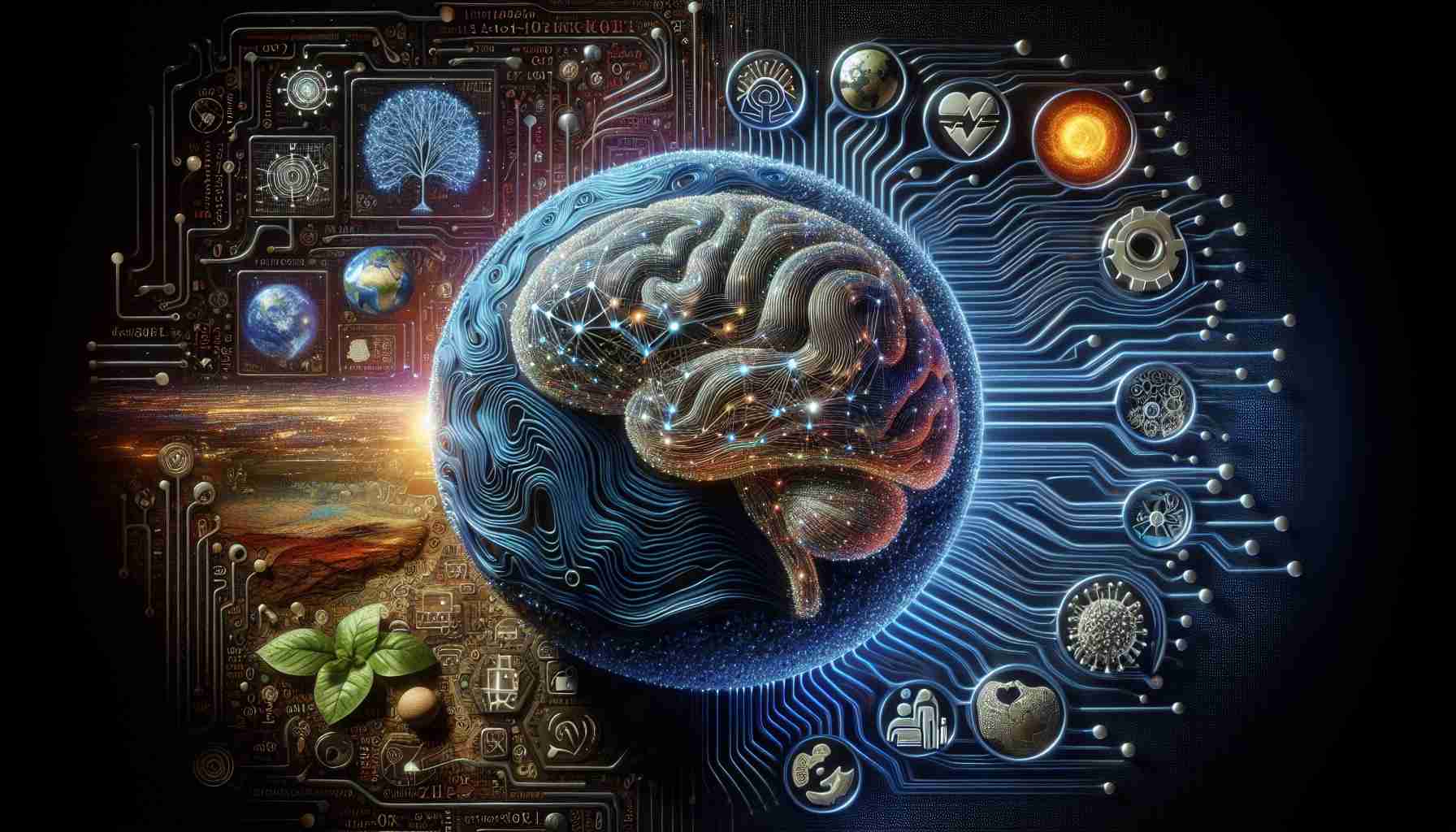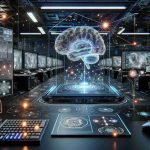Artificial Intelligence (AI) has been a topic of fascination and controversy, with experts debating its potential to revolutionize humanity’s most significant challenges. The idea of AI tackling issues like global conflict and climate change has sparked intense discussions and raised questions about the technology’s capabilities and limitations.
While some envision AI as a transformative force that will reshape economies and provide innovative solutions to complex problems, others view these aspirations as overly optimistic. Michael Littman, a respected figure in computer science, has cautioned against overly idealistic expectations, describing the notion of AI fundamentally restructuring society as more of a “pipe dream” than a realistic vision. Instead, AI is presently utilized to augment existing problem-solving techniques, focusing on enhancing efficiency rather than triggering dramatic paradigm shifts.
Conferences such as South By Southwest (SXSW) serve as platforms for conversations about the immense potential of AI, but the emphasis often gravitates towards pragmatic goals such as product promotion. Discussions around Artificial General Intelligence (AGI), which seeks to develop machines smarter than humans across various domains, occasionally touch on the benefits of AI for humanity. However, these dialogues can sometimes serve as avenues for tech companies to showcase their products and services rather than truly exploring the transformative power of AI.
One notable session at SXSW, titled “Inside the AI Revolution: How AI is Empowering the World to Achieve More,” featured Simi Olabisi from Microsoft shedding light on how AI, particularly within Azure’s cloud service, can revolutionize customer interaction. By leveraging AI-powered language analysis, businesses can extract valuable insights from customer calls, ultimately enhancing their overall customer experience and operational efficiency.
The concept of AGI has gained traction, with OpenAI’s ChatGPT standing as a testament to the progress in creating machines that can rival human intelligence. Proponents like Ben Goertzel foresee AGI becoming a reality soon, projecting that general AI could outperform human intelligence by significant margins as early as 2029. The potential of AGI to self-modify its algorithms and exceed human intelligence levels poses both promising opportunities and ethical dilemmas.
Despite the optimism surrounding AI’s capabilities, concerns linger regarding its ethical implications and societal integration. David Hanson, the visionary behind humanoid robots like Desdemona, envisions AI as a catalyst for addressing global sustainability challenges but stresses the importance of ethical considerations in its development and deployment. The ability of AI to expedite drug and material design, enhance disaster warning systems, and offer innovative solutions underscores its value as a complementary tool in addressing pressing global issues.
While AI showcases remarkable potential, it ultimately relies on human discernment and responsible decision-making to harness its benefits effectively. In a world where AI’s transformative power is increasingly felt, individuals and organizations must navigate the ethical landscape and ensure that AI’s integration into society aligns with humane values, fostering a more sustainable and inclusive future.
Sıkça Sorulan Sorular (FAQ):
- S: İnsanlığın en büyük sorunlarını AI çözebilir mi?
- S: Yapay Genel Zeka (AGI) nedir?
- S: AI etik bir şekilde geliştirilip topluma entegre edilebilir mi?
A: AI, karmaşık problemlerin çözümüne katkıda bulunma potansiyeline sahiptir, ancak sihirli bir çözüm değildir. Şu anda verimliliği arttırma ve değerli içgörüler sağlama konularında yardımcı olmaktadır, ancak daha kapsamlı çözümler insan kararları ve eylemlerini gerektirir.
A: AGI, çeşitli alanlarda insan kapasitelerini aşan bir zekaya sahip makinelerin geliştirilmesini amaçlar. Bu iddialı hedef, insan varlığının birçok yönünü potansiyel olarak devrimleştirebilecek niteliktedir.
A: AI’nın etik bir şekilde geliştirilmesi ve topluma entegre edilmesi olumlu sonuçların sağlanması açısından önemlidir. Sorumlu kullanım ve etik kurallara uyum, AI ile ilişkilendirilen olası riskleri en aza indirerek olumlu etkiyi en üst düzeye çıkarmak için kritiktir.
Kaynaklar:
İlgili Bağlantılar:
- STSXSW hakkında daha fazla bilgi edinmek için web sitelerini ziyaret edin.
- OpenAI ve AGI üzerine çalışmaları hakkında daha fazla bilgi edinmek için web sitelerini ziyaret edin.
- Microsoft ve AI girişimleri hakkında daha fazla bilgi edinmek için web sitelerini ziyaret edin.
- Hanson Robotics’in web sitesini ziyaret ederek robotik ve AI alanındaki ilerlemelerini keşfedin.


